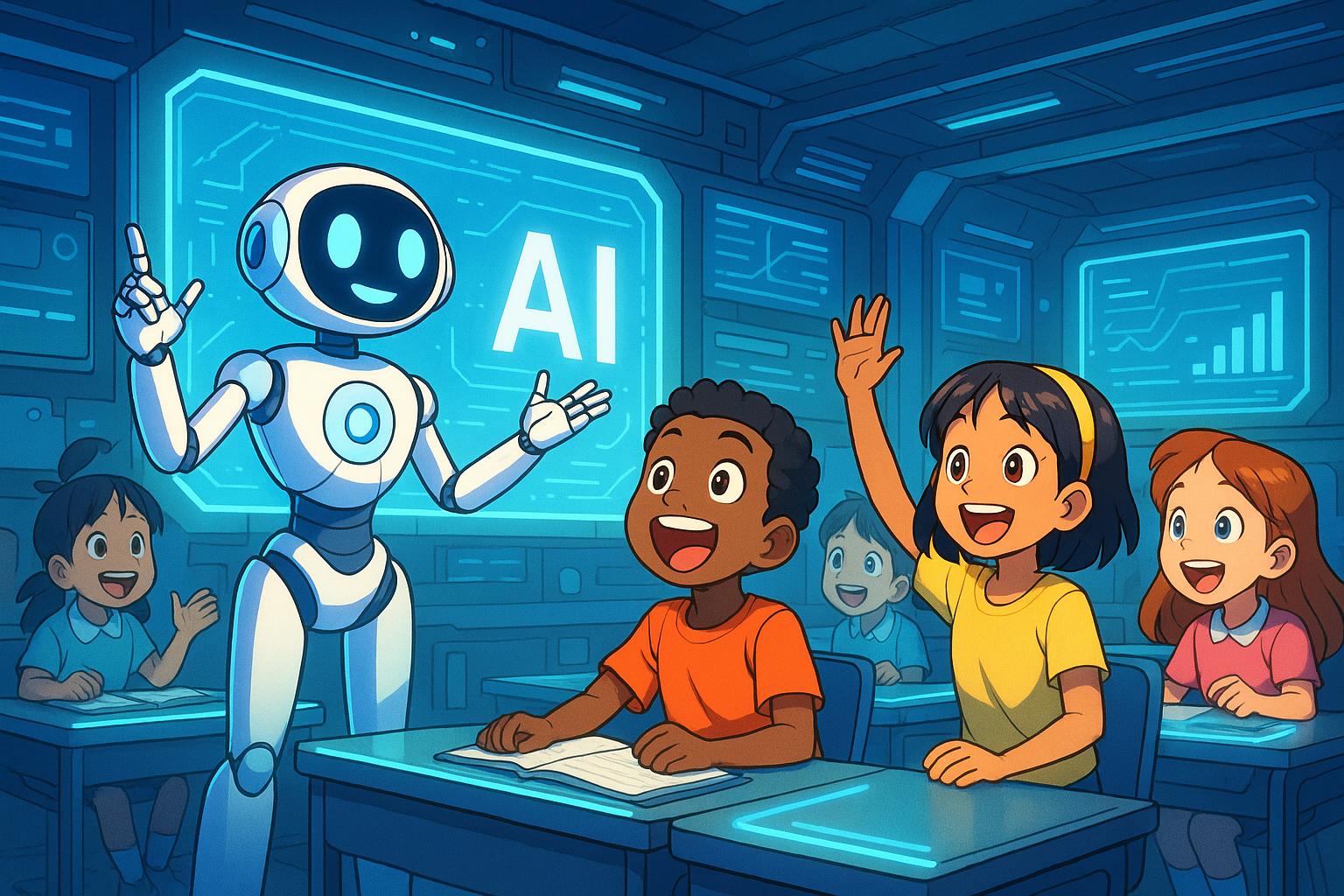Geoffrey Hinton, often referred to as the 'godfather of AI', has made striking predictions about the future of education, asserting that AI-powered chatbots could teach children more than twice as efficiently as human tutors within the next decade. This assertion comes amid a broader exploration of how artificial intelligence is poised to transform educational methodologies. Hinton, a Nobel laureate known for his groundbreaking work in machine learning, claims that the technology has the potential to dramatically enhance the learning experience, making it both more engaging and effective for students.
Hinton argues that AI systems have the capability to analyse extensive datasets from millions of learners, which enables them to pinpoint specific learning gaps. “It’s not there yet but it’s coming,” he remarked, suggesting that such advancements could lead to a more personalised educational experience for each student. By adapting lesson plans to cater to varying skill levels, AI tutors could not only streamline the learning process but also make it less monotonous compared to traditional teaching methods. This sentiment is echoed by other experts in the field who believe that the ability of AI to provide tailored feedback can revolutionise education, potentially outclassing both private tutors and conventional teaching frameworks.
However, while the efficiency of AI tutors appears promising, Hinton cautions against forgetting the invaluable role of human educators in fostering creativity and critical thinking. He emphasises that while AI can excel at delivering factual knowledge and identifying misunderstandings, it lacks the mentorship qualities that human teachers provide. This balance is critical as the integration of AI into classrooms continues to evolve. Educational experts warn that the rise of AI in teaching could threaten traditional universities, particularly in technical disciplines, by making standard teaching methods nearly obsolete.
The United Kingdom's investment in AI educational programmes showcases the growing confidence in this technology. With the government committing substantial funds to facilitate AI's role in education, many argue that it could ease the burden on teachers by taking over administrative tasks and generating lesson plans. Proponents like Bill Gates envisage AI chatbots enabling children to learn to read and improve their writing skills in a remarkably short timeframe, enhancing the accessibility and affordability of education. Gates believes that such advancements could make AI tutors as reliable as human instructors in delivering immediate feedback and tailored support.
Nonetheless, significant concerns remain regarding the societal implications of AI in education. Hinton has warned of the potential dangers associated with rapidly advancing technology, predicting the emergence of "super intelligence" reminiscent of apocalyptic narratives. With the rapid evolution of AI chatbots, many educators and technologists urge a cautious approach, advocating that AI should serve to complement rather than replace the vital human interactions inherent in teaching. Thus, while the possibility of AI revolutionising education is tantalising, it is imperative to ensure that the human touch remains integral to the educational experience.
As we navigate this transformative era, it is clear that thoughtful integration of AI tools like chatbots could redefine learning paradigms, equipping future generations with enhanced skills while also acknowledging the timeless value of human guidance.
Reference Map:
- Paragraph 1 – [1], [4]
- Paragraph 2 – [1], [2], [3]
- Paragraph 3 – [5], [6]
- Paragraph 4 – [7], [3]
- Paragraph 5 – [1], [4]
Source: Noah Wire Services
